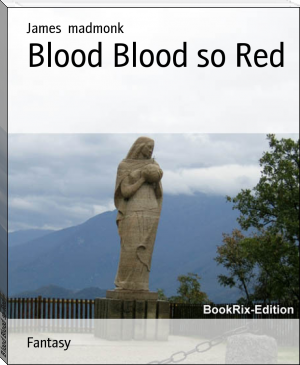Robin Hood by J. Walker McSpadden (best book series to read txt) 📗

- Author: J. Walker McSpadden
Book online «Robin Hood by J. Walker McSpadden (best book series to read txt) 📗». Author J. Walker McSpadden
Outside the gates of Nottingham town they were halted.
“Who comes here?” asked the warder’s surly voice.
“Open to the King of England!” came back the clear answer, and the gates were opened and the bridge let down without delay.
Almost before the company had crossed the moat the news spread through the town like wildfire.
“The King is here! The King is here, and hath taken Robin Hood!”
From every corner flocked the people to see the company pass; and wildly did they cheer for the King, who rode smilingly with bared head down through the market-place.
At the far end of it, he was met by the Sheriff who came up puffing in his haste to do the King honor. He fairly turned green with rage when he saw Sir Richard of the Lea and Robin Hood in the royal company, but made low obeisance to his master.
“Sir Sheriff,” quoth the King, “I have come to rid the shire of outlaws, according to my promise. There be none left, for all have now taken service with their King. And lest there should be further outbreak, I have determined to place in charge of this shire a man who fears no other man in it. Master Little John is hereby created Sheriff of Nottingham, and you will turn over the keys to him forthwith.”
The Sheriff bowed, but dared utter no word. Then the King turned to the Bishop of Hereford, who had also come up to pay his respects.
“Harkee, my lord Bishop,” quoth he, “the stench of your evil actions had reached our nostrils. We shall demand strict accounting for certain seizures of the lands and certain acts of oppression which ill become a churchman. But of this later. This afternoon you must officiate at the wedding of two of our company, in Nottingham Church. So make you ready.”
The Bishop also bowed and departed, glad to escape a severer censure for the time.
The company then rode on to the Mansion House, where the King held high levee through all the noon hours, and the whole town made a holiday.
In the afternoon the way from the Mansion House to Nottingham Church was lined with cheering people, as the wedding party passed by. The famous bowmen were gazed at as curiously as though they had been wild animals, but were cheered none the less. Robin who had long been held in secret liking was now doubly popular since he had the King’s favor.
Along the way ahead of the King and the smiling bride and groom to be ran little maids strewing flowers; while streamers floated in greeting from the windows. I ween, the only hearts that were not glad this day were those of the old Sheriff, and of his proud daughter, who peered between the shutters of her window and was like to eat out her heart from envy and hatred.
At last the party reached the church, where the King dismounted lightly from his horse and helped the bride to alight; while Will Scarlet, the best man, assisted Mistress Dale. Within the church they found the Bishop robed in state, and by his side Friar Tuck who had been especially deputed to assist.
The service was said in Latin, while the organ pealed forth softly. The King gave away the bride, as he had said, and afterwards claimed first kiss for his pains. Then the happy party dispersed, and Robin and Marian passed out again through the portal, man and wife.
Out through the cheering streets they fared, while the greenwood men ran ahead and flung gold pennies right and left in their joy, and bade the people drink the health of the young couple and the King. Then the whole party took horse at Will Scarlet’s earnest wish, and went down to Gamewell Lodge, where the old Squire George wept for joy at seeing his son and the King and the wedding—party. That night they spent there, and feasted, and the next day, Sir Richard of the Lea claimed them.
And thus, amid feasting and rejoicing and kingly favor, Robin Hood, the new Earl of Huntingdon, and his bride began their wedded life.
CHAPTER XXIV HOW ROBIN HOOD MET HIS DEATH “Give me my bent bow in my hand, And a broad arrow I’ll let flee; And where this arrow is taken up, There shall my grave digg’d be.”
Now by good rights this story should end with the wedding of Robin Hood and Maid Marian; for do not many pleasant tales end with a wedding and the saying, “and they lived happy ever after.”
But this is a true account—in so far as we can find the quaint old ballads which tell of it—and so we must follow one more of these songs and learn how Robin, after living many years longer, at last came to seek his grave. And the story of it runs in this wise.
Robin Hood and his men, now the Royal Archers, went with King Richard of the Lion Heart through England settling certain private disputes which had arisen among the Norman barons while the King was gone to the Holy Land. Then the King proceeded amid great pomp and rejoicing to the palace at London, and Robin, the new Earl of Huntingdon, brought his Countess thither, where she became one of the finest ladies of the Court.
The Royal Archers were now divided into two bands, and one-half of them were retained in London, while the other half returned to Sherwood and Barnesdale, there to guard the King’s preserves.
Several months passed by, and Robin began to chafe under the restraint of city life. He longed for the fresh pure air of the greenwood, and the rollicking society of his yeomen. One day, upon seeing some lads at archery practice upon a green, he could not help but lament, saying, “Woe is me! I fear my hand is fast losing its old time cunning at the bow-string!”
Finally he became so distraught that he asked leave to travel in foreign lands, and this was granted him. He took Maid Marian with him, and together they went through many strange countries. Finally in an Eastern land a great grief came upon Robin. Marian sickened of a plague and died. They had been married but five years, and Robin felt as though all the light had gone out of his life.
He wandered about the world for a few months longer, trying to forget his grief, then came back to the court, at London, and sought some commission in active service. But unluckily, Richard was gone again upon his adventures, and Prince John, who acted as Regent, had never been fond of Robin. He received him with a sarcastic smile.





Comments (0)